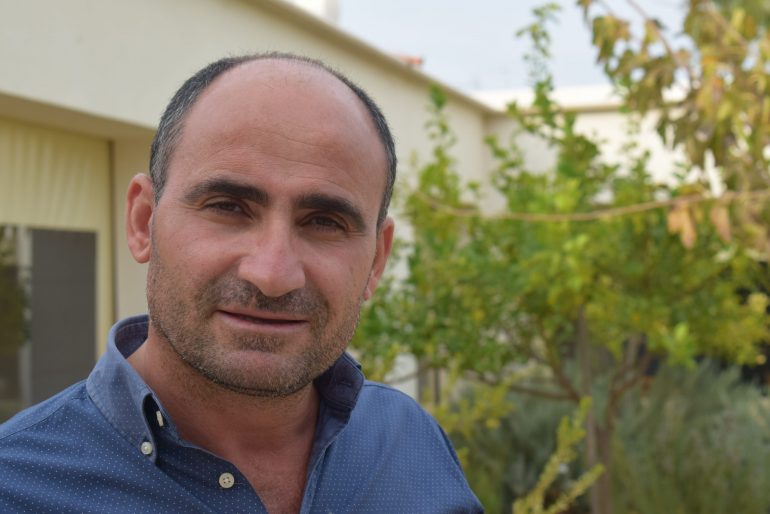During World War II, an Austrian writer, Viktor E. Frankl, spent three years in Auschwitz and Dachau concentration camps, and after surviving, he described his horrific experiences of the Holocaust in his book entitled "Seeking meaning of life and freedom". His experiences in the death camps cause sadness but also anger for the atrocities committed against millions of people and are a sign of dehumanization and irrationality in the context of war.
The author develops in the pages of his work theories that can help to understand the psychology of the prisoner, a psychology that became known as the syndrome of "barbed wire disease". Prisoners in the concentration camp represent, according to Frankl, the average person. The same seems to apply to us who after 1974 live in the remote and semi-occupied areas of our island, coming in daily contact with the barbed wire.
In the concentration camp the prisoner is humiliated and loses his endurance, while we resist, remain arrogant, despite all the difficulties of living due to our confinement within limited limits.
According to Frankl's testimonies in the concentration camps, prisoners sent to the left during the siege meant that they were ill and unable to work and were sent directly to the crematorium and baths. Those sent to the right were destined for work and were granted an extension of life until they themselves ended up in the special death camp. On the contrary, we continue to move forward with our heads held high, because our purpose in life is to endure everything, as Nietzsche puts it.
Of course, in the environment of the enclosed camp, frustration, inaction and indignation often lead to despair, with the result that many prisoners commit suicide before being sent to the gas chambers. We will not, however, throw ourselves into the barbed wire, as prisoners in concentration camps used to do by touching the electrically charged barbed wire, but we will continue to live as "free besieged" next to it, hoping that one day it will be demolished.
We are a small, living part of a mass of people huddled behind the barbed wire. The reasonable result of this situation is that our people are gradually left without opportunities for progress and wear out. But we will continue to maintain our human dignity and remain human, even in the limited space we have left.
Unfortunately, the current situation in the Cyprus issue finds us immersed in uncertainty, as it does not allow us to predict whether and when - or even never - this way of life will come to an end. We ended up looking like prisoners in concentration camps. The same, as those who suffered from the strange "experience of time", since for them a day full of incessant suffering and exhaustion seemed endless. So to us the agony, the sufferings of everyday life and composure kill us, while the day out of the impasse is still unknown.
Until this day comes, we, the inhabitants of the outlying areas, will not lose our hope and courage, despite all the frustration that overwhelms us. The pain caused by the barbed wire will not lead us to the collapse and abandonment of any hope for the reunification of our homeland. As long as we are still alive, we will hope for better days in our place. The extension of life that is given to us every day and I hope it has an effect.
The barbed wire damns not only our hands but also our souls, and together with the dead zone they mark the restriction of freedom and the violation of our human rights.
Everything that the Austrian author described in his work, but also everything that we live every day next to the barbed wire, the human mind finds difficult to understand, except when it experiences them.
Andros G. Karagiannis
Mayor of Deryneia
